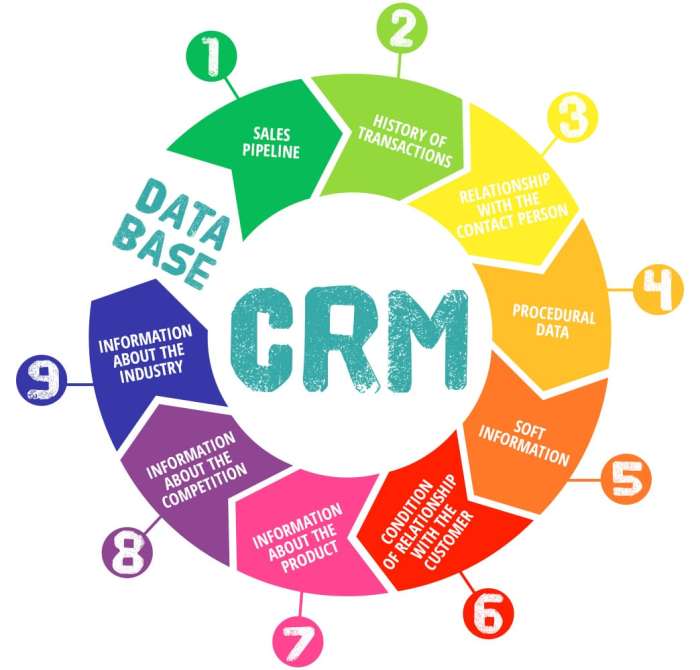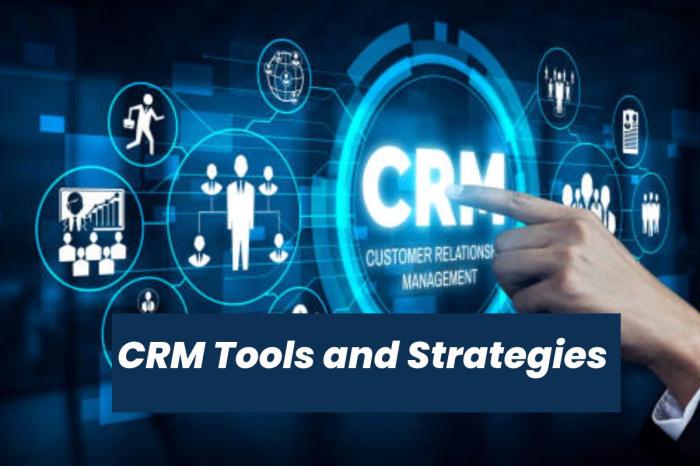With Using CRM Tools in Marketing at the forefront, this paragraph opens a window to an amazing start and intrigue, inviting readers to embark on a storytelling journey filled with unexpected twists and insights.
CRM tools have revolutionized the way businesses interact with customers and execute marketing campaigns. From analyzing data to optimizing strategies, these tools play a crucial role in driving success in the competitive marketing landscape.
Importance of CRM Tools in Marketing
CRM tools play a crucial role in enhancing customer relationship management by allowing businesses to efficiently track and analyze customer interactions. These tools help companies better understand their customers’ needs and preferences, leading to improved personalized communication and targeted marketing strategies.
Impact of CRM Tools on Marketing Strategies
- CRM tools enable businesses to create detailed customer profiles, which can be used to tailor marketing campaigns to specific target audiences.
- By analyzing customer data collected through CRM tools, companies can identify trends and patterns, allowing them to anticipate customer needs and preferences.
- CRM tools help businesses track the effectiveness of marketing campaigns in real-time, allowing for quick adjustments to optimize results.
Examples of Successful Marketing Campaigns Aided by CRM Tools
Amazon’s personalized product recommendations based on customer purchase history have significantly increased sales and customer loyalty.
- Starbucks’ mobile app utilizes CRM tools to offer personalized deals and rewards to customers, resulting in increased customer engagement and loyalty.
- Nike’s use of CRM tools to track customer interactions across various channels has allowed the company to create targeted marketing campaigns that resonate with their audience.
Types of CRM Tools Used in Marketing

When it comes to marketing, there are various types of CRM tools that businesses can utilize to streamline their processes and enhance customer relationships. Let’s take a look at some of the most common types of CRM tools used in marketing:
Customer Database Management Systems, Using CRM Tools in Marketing
- Customer database management systems, such as Salesforce, are essential CRM tools that allow businesses to store and organize customer information in one centralized location.
- These tools help marketing teams track customer interactions, preferences, and purchase history to create targeted marketing campaigns and personalize communication.
Marketing Automation Platforms
- Marketing automation platforms like HubSpot and Marketo enable businesses to automate repetitive marketing tasks, such as email marketing, lead nurturing, and social media management.
- These tools help marketing teams save time, improve efficiency, and deliver personalized content to leads and customers at the right time.
Analytics and Reporting Tools
- Analytics and reporting tools, such as Google Analytics and Tableau, provide valuable insights into customer behavior, campaign performance, and ROI.
- These tools help marketing teams measure the success of their campaigns, track key performance indicators, and make data-driven decisions to optimize marketing strategies.
Social Media Management Platforms
- Social media management platforms like Hootsuite and Sprout Social help businesses manage their social media accounts, schedule posts, engage with followers, and analyze social media performance.
- These tools enable marketing teams to create and publish content, monitor social conversations, and build relationships with customers on various social media channels.
Implementing CRM Tools in Marketing Strategies
Integrating CRM tools into marketing campaigns is essential for businesses looking to enhance customer relationships and drive sales. By utilizing CRM tools effectively, companies can streamline their marketing efforts and personalize interactions with customers.
Steps for Integrating CRM Tools into Marketing Campaigns
When implementing CRM tools in marketing strategies, it is crucial to follow these steps:
- Assess Your Needs: Identify the specific goals and objectives you want to achieve with CRM tools.
- Choose the Right CRM Software: Select a CRM tool that aligns with your business requirements and budget.
- Train Your Team: Provide adequate training to your team members to ensure they can effectively use the CRM tool.
- Integrate CRM with Existing Systems: Ensure seamless integration of CRM tools with other marketing platforms for a unified approach.
- Analyze Data and Insights: Regularly analyze customer data and insights provided by CRM tools to make informed marketing decisions.
Best Practices for Utilizing CRM Tools Effectively in Marketing
Here are some best practices to maximize the benefits of CRM tools in marketing:
- Personalize Customer Interactions: Use CRM data to tailor marketing messages and offers according to individual customer preferences.
- Automate Marketing Processes: Leverage CRM automation features to streamline marketing workflows and save time.
- Monitor Customer Engagement: Track customer interactions and engagement metrics to optimize marketing campaigns.
- Collaborate Across Teams: Encourage collaboration between sales, marketing, and customer service teams using CRM tools for a cohesive customer experience.
Tips for Maximizing the Benefits of CRM Tools for Marketing Purposes
To make the most out of CRM tools in marketing, consider the following tips:
- Regularly Update Customer Data: Keep customer information up-to-date to ensure accurate targeting and personalized marketing efforts.
- Utilize Reporting and Analytics: Use CRM reporting and analytics features to measure the effectiveness of marketing campaigns and make data-driven decisions.
- Focus on Customer Retention: Implement strategies to nurture existing customer relationships and drive repeat business through CRM tools.
- Stay Customer-Centric: Always prioritize customer needs and preferences when designing marketing campaigns with the help of CRM insights.
Data Analysis and Reporting with CRM Tools: Using CRM Tools In Marketing

CRM tools play a crucial role in helping businesses analyze data for valuable marketing insights and generate reports to evaluate marketing performance. Let’s delve into how CRM tools assist in these key areas.
Data Analysis for Marketing Insights
CRM tools enable businesses to analyze customer data, interactions, and behaviors to gain valuable insights into customer preferences, trends, and patterns. This data analysis helps marketers understand their target audience better and tailor their marketing strategies to meet customer needs effectively.
Generating Reports for Marketing Performance
With CRM tools, businesses can generate detailed reports on various marketing metrics such as lead generation, customer acquisition, conversion rates, and customer retention. These reports provide valuable information on the effectiveness of marketing campaigns, allowing marketers to make data-driven decisions and optimize their strategies for better results.
Tracking and Measuring Marketing Metrics
- CRM tools assist in tracking customer interactions across different channels, including website visits, email opens, social media engagement, and more.
- By measuring key marketing metrics such as ROI, customer lifetime value, and customer satisfaction scores, CRM tools help businesses evaluate the success of their marketing efforts.
- Through advanced analytics features, CRM tools enable marketers to identify trends, forecast outcomes, and continuously improve their marketing strategies for optimal performance.
